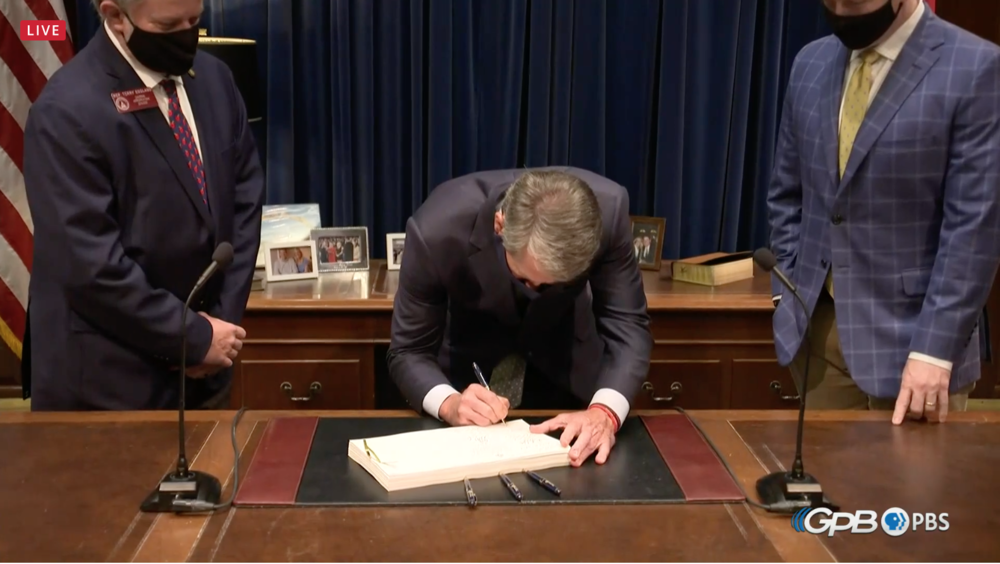Section Branding
Header Content
Kemp Signs ‘Bittersweet’ $25.9 Billion State Budget
Primary Content
Gov. Brian Kemp signed the state’s fiscal year 2021 budget Tuesday, enacting more than $2 billion in cuts due to lower revenues wrought by the coronavirus.
In a livestreamed ceremony, Kemp said the $25.9 billion spending plan still was a reflection of the state’s values, like education, health care and public safety.
“It puts people over politics and helps ensure a safer, stronger tomorrow for all Georgians,” he said. “But this budget speaks to some of the quite honestly hard choices made by state leaders to streamline and innovate, and while we were able to avoid draconian cuts, getting a balanced budget was hard.”
RELATED: In Waning Hours Of 2020 Session, Lawmakers Pass Pared-Back Budget
About $950 million was cut from the state’s K-12 education funding, although legislative budget writers said much of that would be supplemented by close to half a billion in federal coronavirus relief funding sent directly to school systems.
“This budget fully funds enrollment growth and training for public school education,” Kemp said. “It recognizes a 7.8% increase in enrollment at state charter schools, and this budget provides over $55 million in additional lottery funds for hope scholarships and grant programs to meet projected demand.”
The House and Senate appropriations committees were also able to spare most state employees from likely furloughs, in part by pulling $250 million from the state’s rainy day fund. Lawmakers also estimate another $1 billion from the revenue shortfall reserves will be needed to cover the end of this fiscal year.
Kemp also highlighted several line items that deal with health care, including $19 million in new funding to expand access to Medicaid for new mothers until six months postpartum.
In all, the cuts to state agencies represent about a 10% reduction after state revenue collections fell amidst the coronavirus pandemic.
During the legislative session that ended on Friday, lawmakers failed to approve several larger proposals to increase revenue for the state, including a hike on cigarette taxes and cutting back on tax breaks for businesses.


